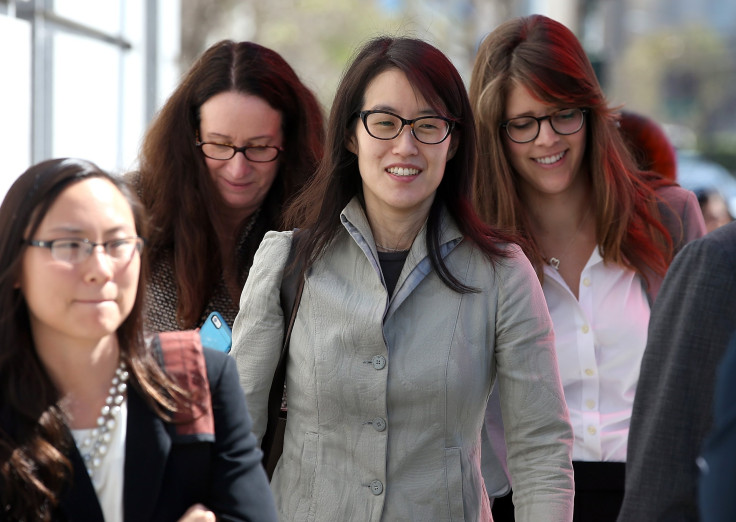Silicon Valley Diversity Problem: Female Leaders Launch ‘Project Include’ To Diversify Tech Industry’s Workforce

Tech executives in Silicon Valley have vowed for years to address the industry’s lack of diversity. Yet the employees of most technology firms, including Google Inc. and Apple Inc., remain predominantly white and male.
“The standard mantra for every company on diversity statistics is, ‘We’re not doing well, but we’re working on it,’” Ellen Pao, a former venture capitalist at Kleiner Perkins Caufield & Byers, told the New York Times this week. “People don’t learn anything from that. Can you tell us, what are you actually doing?”
Pao and seven other prominent Silicon Valley women on Tuesday unveiled a new initiative to address the diversity gap at early- to-mid-stage tech startups. Project Include will work directly with CEOs and top management to track workforce diversity, share data, make recommendations and consult with leaders.
“True diversity means including all underrepresented groups across all aspects of a company and measuring outcomes so everyone has a fair opportunity to succeed — and ultimately building better teams, better companies and better results,” according to the project’s website. The initiative defines underrepresented groups along the lines of “gender, race, class, age, religion, disability, education, sexual orientation and others.”
Pao became a leading voice on diversity in Silicon Valley after suing Kleiner Perkins for accusations of gender discrimination. She dropped the suit in September after a jury denied Pao’s claim that the venture capital firm retaliated against her for reporting gender bias at the company.
Erica Baker, another Project Include co-founder, similarly caused a stir after attempting to bring more transparency to how Google employees are paid. As an engineer for the global tech giant, she assembled an internal spreadsheet where fellow Googlers could enter details about their salary and compensation packages, as well as their gender and job titles. Baker claimed the tool helped several employees negotiate for bigger salaries. But she said she was later reprimanded by her manager and denied bonuses.
Project Include’s other six members include: Laura Gómez, who founded a startup focused on improving diversity in the hiring process; Freada Kapor Klein, a partner at the Kapor Center; Tracy Chou, a software engineer at Pinterest; Susan Wu of mobile payments startup Stripe; Y-Vonne Hutchinson of the diversity consulting firm ReadySet; and Bethanye McKinney Blount, a former executive at Reddit.
To jumpstart Project Include, the women aim to enlist at least 18 companies, including startups that employ 25 to 1,000 workers. Participating tech companies will make commitments to track the diversity of their workforces over time and share that data with other startups, in an attempt to move the needle across the industry. The project will also seek participation from venture capital firms that advise the startups.
Project Include’s founders and participants will meet regularly for seven months to define and track diversity metrics. After that period, the group will publish an anonymized set of results revealing by how much, or how little, the startups have progressed.
“If companies start early with diversity and inclusion, they don’t have to bolt it on later, which is much harder,” Baker, who now works at Slack, the workplace collaboration software startup, told the Times.
The diversity push could pay off for the startups, literally. A recent Morgan Stanley report found that companies that hire more women and pay them equitably delivered slightly higher returns on equity — about 1 percent over a three-year horizon — compared to their less-gender-diverse counterparts. Stocks in diverse companies also outperformed companies with lower gender diversity scores, the bank’s research arm found in a major report released this week.
© Copyright IBTimes 2024. All rights reserved.





















